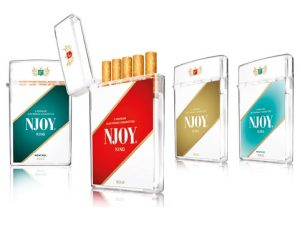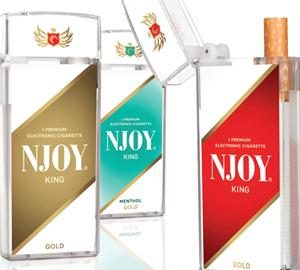NJOY Becomes First Major U.S. E-Cigarette Company to Declare Bankruptcy
Scottsdale-based electronic cigarette company NJOY has recently filed for bankruptcy under Chapter 11, citing $32 million in debt and a serious liquidity crisis. Last month, NJOY announced that it had a deficit of more than $234 million and had begun operating under a cash preservation strategy that included delaying payments to vendors.
 In 2012, NJOY was considered the biggest player in the U.S. e-cigarette industry, covering around 50% of the electronic cigarette market. Fast forward to present day, NJOY controls just 4.5% of the U.S. market and is in such a dire situation that it can’t even find a buyer. So what led to the unfortunate downfall of this once popular brand? Court documents filed by the company cite the failure of its Kings 2.0 electronic cigarette as the main reason, but it was actually a combination of factors.
In 2012, NJOY was considered the biggest player in the U.S. e-cigarette industry, covering around 50% of the electronic cigarette market. Fast forward to present day, NJOY controls just 4.5% of the U.S. market and is in such a dire situation that it can’t even find a buyer. So what led to the unfortunate downfall of this once popular brand? Court documents filed by the company cite the failure of its Kings 2.0 electronic cigarette as the main reason, but it was actually a combination of factors.
The original NJOY Kings was a widely popular e-cigarette, which at its peak, in 2013, brought the company over $90 million in sales. However, near the end of that year, NJOY launched an updated version of the e-cig, the Kings 2.0. which performed poorer than expected. Its rejection by consumers led to higher rates of returns for the product, and sales of other NJOY products stared dropping as well. The company ceased the manufacture of this product in January 2014 and replaced with an improved version, but the damage had been done. NJOY sales dropped to to $22 million in 2014, and to an abysmal $7.4 million in 2015. In February 2014, NJOY received a $70 million capital injection from investors including Brookside Capital and Morgan Stanley Investment Management, but that was not enough to stop the bleeding.
But while the poor performance of the Kings 2.0 seems to be the main cause of NJOY’s downfall, it was certainly not the only one. The aggressive push of tobacco companies, with their endless financial resources and established retail chains, into the cigalike market also affected NJOY. The bulk of their sales came from physical locations like supermarkets and convenience stores, where it’s almost impossible to compete with Big Tobacco. But while other independent companies sold out to tobacco companies, NJOY tried to ride out the storm and failed.
In his declaration, NJOY CEO Jeffrey Weiss also mentions the “substantial expenses” of trying to prepare for the deeming regulations of the Food and Drug Administration and complying with state laws. The costs involved in preparing pre-market applications are too high for the vast majorities of independent e-cig companies, and by effectively removing all devices introduced to the market after February 2007, the FDA is forcing small players to compete with Big Tobacco in the cigalike sector.
Lastly, NJOY is engaged in a court battle with Fontem Ventures, a subsidiary of Imperial Tobacco, over patent infringement. Weiss claims that the company has so far spent over $2.5 million on its defense alone.
NJOY reportedly hired Barclays Capital in January to find a buyer for the company, but it appears no one was interested. Barclays has been marketing the company’s assets since then.
The downfall of NJOY is especially sad considering that in 2009, the company then known as Sottera took the FDA to court and won a landmark case that prevented the agency from regulating electronic cigarettes as drug-device combination products. Everyone, including its competitors, agrees that NJOY played a pivotal role in the rise of vaping and paved the way for the whole industry to prosper.
While NJOY is the first major e-cigarette company to file for relief under Chapter 11, many in the vaping community believe that in light of the recent regulations enforced by the FDA, other independent companies will share its fate in the not so distant future.
















